

PH.D. (ANIMAL NUTRITION) Admission 2024, Syllabus, Eligibility, Duration
PH.D. (ANIMAL NUTRITION) Admission 2024, Course Fees Structure, Career Prospects and Jobs Scope | Salary & PayScale for PH.D. (ANIMAL NUTRITION) Holders | Course Duration | PH.D. (ANIMAL NUTRITION) Specializations Admission Process | Entrance Exams for (PH.D. (ANIMAL NUTRITION))
DOCTOR OF PHILOSOPHY IN ANIMAL NUTRITION Admission | DOCTOR OF PHILOSOPHY IN ANIMAL NUTRITION Course Fees Structure | DOCTOR OF PHILOSOPHY IN ANIMAL NUTRITION Career Prospects and Jobs Scope | Salary & PayScale for DOCTOR OF PHILOSOPHY IN ANIMAL NUTRITION Degree Holders | DOCTOR OF PHILOSOPHY IN ANIMAL NUTRITION Course Duration | DOCTOR OF PHILOSOPHY IN ANIMAL NUTRITION Specializations | DOCTOR OF PHILOSOPHY IN ANIMAL NUTRITION Admission Process | Entrance Exams for (DOCTOR OF PHILOSOPHY IN ANIMAL NUTRITION)
PH.D. (ANIMAL NUTRITION)
DOCTOR OF PHILOSOPHY IN ANIMAL NUTRITION
Doctor of Philosophy
3 Years
Master
Year
Degree
PhD Animal Nutrition,Highlights, Entrance Exam, admission, Eligibility, Duration, Selection Criteria, How to Apply, Application Form, Application Process, fee, Syllabus,Salary and Jobs,career opportunities
A PhD in Animal Nutrition is a research-oriented program that focuses on the study of the nutritional needs of animals and the formulation of diets that meet those needs. The program typically prepares students for careers in academia, research, and the animal feed and nutrition industry. Here is an overview of what to expect from a PhD program in Animal Nutrition:
Program Structure:
A PhD program in Animal Nutrition typically takes 3-5 years to complete, and consists of a combination of coursework and research. Students are required to complete a set of core courses, as well as electives that align with their research interests. Students will also work closely with a faculty advisor to develop and complete their research project, which will culminate in a dissertation.
Coursework:
The core coursework in a PhD program in Animal Nutrition covers topics such as:
Advanced animal nutrition
Nutrient metabolism
Ruminant and non-ruminant nutrition
Feed processing and quality control
Nutritional biochemistry
Feedstuff analysis and evaluation
Animal behavior and welfare
Elective courses may cover specialized topics such as animal genetics, feed formulation, and food safety.
Research:
Research is a major component of a PhD program in Animal Nutrition. Students will work closely with a faculty advisor to develop and conduct original research that contributes to the field. This research may involve animal feeding trials, laboratory analysis of feed and animal samples, and statistical analysis of data. The results of the research will be presented in a dissertation and may also be published in academic journals.
Career Opportunities:
Graduates of a PhD program in Animal Nutrition can pursue a variety of career paths, including:
University professor
Research scientist
Feed industry consultant
Animal nutritionist
Regulatory affairs specialist
Government researcher
Salary:
The salary for individuals with a PhD in Animal Nutrition varies depending on the career path chosen. Here are some potential salaries based on career paths:
University professor: $70,000 - $150,000 per year
Research scientist: $70,000 - $120,000 per year
Feed industry consultant: $60,000 - $100,000 per year
Animal nutritionist: $50,000 - $90,000 per year
Regulatory affairs specialist: $60,000 - $100,000 per year
Government researcher: $70,000 - $120,000 per year
Overall, a PhD in Animal Nutrition is a rigorous program that provides students with advanced training in the field of animal nutrition, preparing them for careers in academia, research, and the animal feed and nutrition industry.
PhD Animal Nutrition,highlights
Here are some highlights of a PhD program in Animal Nutrition:
Advanced training: A PhD program in Animal Nutrition provides advanced training in the field of animal nutrition. Students gain a deeper understanding of the nutritional requirements of different animal species, as well as the role of nutrients in animal health and production.
Research opportunities: The program offers extensive research opportunities, allowing students to gain hands-on experience in conducting animal feeding trials, analyzing feed and animal samples, and interpreting data. The research projects may also lead to publications in academic journals.
Specialization: Students can choose to specialize in a particular area of animal nutrition such as ruminant or non-ruminant nutrition, feed processing and quality control, or nutritional biochemistry. This specialization allows students to develop expertise in their area of interest.
Career prospects: Graduates of a PhD program in Animal Nutrition are in high demand in the animal feed and nutrition industry, academia, research institutions, and government agencies. They can work as university professors, research scientists, animal nutritionists, regulatory affairs specialists, feed industry consultants, or government researchers.
Professional development: PhD programs in Animal Nutrition also offer opportunities for professional development, such as attending conferences, presenting research papers, and networking with professionals in the field. This helps students to gain exposure and establish themselves in the field.
Overall, a PhD in Animal Nutrition is a valuable degree that equips students with advanced knowledge and skills in the field of animal nutrition, paving the way for a successful career in the industry.
PhD Animal Nutrition Entrance Exam and Admission:
The admission process for a PhD program in Animal Nutrition varies depending on the university. Generally, admission is based on the candidate's performance in a qualifying exam such as GATE or NET, as well as an interview. Candidates are also required to submit an application, transcripts, letters of recommendation, and a statement of purpose.
PhD Animal Nutrition Eligibility:
The eligibility criteria for a PhD program in Animal Nutrition may vary slightly from university to university, but typically include:
A master's degree in Animal Nutrition or a related field with a minimum GPA of 3.0 (on a 4.0 scale)
Qualifying scores in a national or university-level entrance exam such as GATE or NET
English proficiency test scores (for international students)
Letters of recommendation and a statement of purpose
PhD Animal Nutrition Duration:
The duration of a PhD program in Animal Nutrition is typically 3-5 years, depending on the research project and the student's progress. Students are required to complete a certain number of coursework credits, conduct original research, and write a dissertation.
PhD Animal Nutrition Selection Criteria:
The selection criteria for a PhD program in Animal Nutrition typically include:
Performance in a national or university-level entrance exam such as GATE or NET
Academic record and GPA
Research experience and skills
Letters of recommendation
Statement of purpose
Interview performance
PhD Animal Nutrition How to Apply:
To apply for a PhD program in Animal Nutrition, candidates should follow these steps:
Research universities and programs that offer a PhD in Animal Nutrition.
Check the eligibility criteria for each program and make sure you meet the requirements.
Prepare for and take any required entrance exams.
Collect transcripts, letters of recommendation, a statement of purpose, and any other required application materials.
Submit an online application through the university's website.
Follow up with the university to ensure that all required materials have been received and the application is complete.
Overall, the admission process for a PhD program in Animal Nutrition is competitive and requires strong academic credentials and research experience. Candidates should carefully review the eligibility criteria and application requirements for each program and prepare their application materials carefully.
PhD Animal Nutrition Application Form and Application Process:
To apply for a PhD program in Animal Nutrition, candidates need to fill out an application form, which is typically available on the university's website. The application process usually involves submitting transcripts, letters of recommendation, a statement of purpose, and any other required application materials. Candidates may also need to take a national or university-level entrance exam such as GATE or NET. The application deadline varies from university to university.
PhD Animal Nutrition Fee:
The application fee for a PhD program in Animal Nutrition varies depending on the university. Candidates should check the application fee details on the university website before applying.
PhD Animal Nutrition Syllabus:
The syllabus for a PhD program in Animal Nutrition may vary depending on the university, but typically includes courses in animal nutrition, biochemistry, physiology, genetics, microbiology, statistics, and research methods. Students also conduct independent research and work closely with faculty mentors to develop their research skills.
PhD Animal Nutrition Salary and Jobs:
Graduates of a PhD program in Animal Nutrition are in high demand in a variety of industries. They can work as university professors, research scientists, animal nutritionists, regulatory affairs specialists, feed industry consultants, or government researchers. The salary of a PhD in Animal Nutrition varies depending on the position, location, and experience. According to PayScale, the average
PhD Animal Nutrition Career Opportunities:
A PhD in Animal Nutrition opens up a wide range of career opportunities in academia, industry, and government. Graduates can work in the following industries:
Animal feed and nutrition industry: Animal nutritionists work in the animal feed and nutrition industry to develop and market animal feed products that meet the nutritional requirements of different animal species.
Research institutions: Research scientists work in research institutions to conduct research on animal nutrition and develop new feed products that improve animal health and production.
Government agencies: Regulatory affairs specialists work in government agencies to develop regulations and guidelines for the animal feed and nutrition industry.
University professors: PhD graduates can work as university professors to teach animal nutrition courses and conduct research in their area of expertise.
Overall, a PhD in Animal Nutrition provides students with advanced knowledge and skills in the field of animal nutrition, paving the way for a successful career in the industry.
Ph.D. (Animal Nutrition) is a doctoral level course. Generally the duration of this course is three year and its syllabus is divide in six semesters of six month each. The doctoral program is useful for understanding the principles of animal nutrition. This estimate involves coursework and the writing and acceptance of the dissertation. The course mainly centered on related disciplines as biology, physiology, genetic engineering, animal behavior, growth and production, and companion animals. The program involves some specialized modules such as Fundamentals of nutrition, Ruminant nutrition, Agri-business, Molecular nutrition, Zoo animal nutrition, Non-ruminant nutrition, Case studies etc. The doctoral program provide helps in knowing about the innovations in technology and adoption of technology in the fields of nutrition, biochemistry, feed production and animal genetics.
Ph.D. (Animal Nutrition) Admission Process:
Admission to the Ph.D. program shall be based on the students marks obtained in the entrance test conducted by the respective department or school of the particular university or institute. Those candidates who have complete GATE/NET/SET/ M.Phil/JRF Examination in the pertinent subject of the apex bodies as CSIR/UGC/ICAR/ICMR/DBT will be exempted from the Entrance Test. While giving the exemption, the Departmental Committee of the institute may consider research work/earlier Ph.D./experience done by the student. If a student already holds a Doctors degree in a relevant subject from a UGC Approved University or Institute, he/she may be exempted from entrance exam and pre Ph.D. coursework. After clearing the both steps the student will be eligible to pay course fee or registration fee. Only the predetermined number of candidates may be admitted to Ph.D. programme.
Ph.D. (Animal Nutrition) Job Prospect:
- Animal dietician
- Animal Nutritionist
- Veterinary Technician
- Dairy Consultant
- Teacher / Professor
- Research associate
Ph.D. (Animal Nutrition) Employ Zone:
- Animal and pet food manufacturers
- Agricultural advisory bodies
- International development agencies
- Government departments
- Educational and research institutions
- Universities
PH.D. ADMISSION PROCEDURE
- Application for the entrance exam
- Result declaration
- Entrance pass scholar calling for the interview and document verification
- Provisional registration for pre Ph.D. course work classes
- Coursework classes shall be attended as scheduled by University
- Course work examination
- Result declaration of coursework
- Submission of synopsis ( 2 spiral bound copies with soft copy of synopsis)
- Departmental research committee meeting scheduled by University
- A registration letter shall be issued
- Research work started by scholar
- 6 progress reports shall be submitted
- Soft copy thesis submit
- plagiarism report check by the university
- Final after the plagiarism report soft copy thesis shall be sent to experts for evaluation
- After the consent of experts pre-submission, one set spiral binding shall be submitted
- After the successful presentation of the pre-submission thesis 3 copies of hard bound thesis shall be submitted
- Viva shall be conducted as scheduled by University, Degree Awarded.
DOCUMENTS CHECKLIST
- Documents (10th onwards)
- Aadhar Card/Pan Card, Caste Certificate
- Migration Certificate (Original)
- NOC (From Organization/ Institute/ University)
- Affidavit (undertaking)
- Guide Willing
- Assignments
- Synopsis (3 copies), Progress Report
- Library No Dues
- Lab Letter
- Thesis Hard copy (Spiral binding)
- No Dues, Thesis (6 hard copies)
- Affidavit -Submission (on Rs 100 Stamp and Notary Attested)
- C.D Soft copies (Thesis & Synopsis)
- Conference Certificate - 2
- Research Papers -2 (with ISSN No.)
- summary (page limit 20-30) -3 Copies
- Plagiarism Report Below 10%
FAQs About Ph.D. Program
Q.1 - What is the procedure for Ph.D.? Admission to the University?
ANSWER: - The Ph.D. and M.Phil. programs of prestigious Universities are conducted and guided strictly as per the provisions and regulations dictated by the UGC (Minimum Standards and Procedure for Award of Ph.D./M.Phil. Degrees) (1st Amendment) Regulations, 2018 and subsequent amendments. The entire procedure for admission to the research programs encompasses a Research Entrance Exam (RET) and then an Interview/Viva Voce. The performance of a candidate in the RET is given 70% weightage, and the remaining 30% weightage is given to his/her performance at the Interview.
Q.2 - What are the modes of pursuing M.Phil. & Ph.D. programs at the University?
ANSWER: -Both the full-time and part-time modes are available at University for pursuing its Ph.D. programs and only the full-time mode is available for M.Phil. program in the desired subjects/fields. These highly-qualitative and prolific research programs are available in a rather broad range of fields/subjects. At University, the minimum time duration of the M.Phil. and Ph.D. programs is 1.5 Years and 3 Years, respectively, in general.
Q.3 - Are the Ph.D. and M.Phil. Degrees granted by any University valid abroad?
ANSWER: -Yes, of course. If the University is properly recognized under section 2(f) of the UGC Act of 1956 and is a prestigious member of the AIU (the Association of Indian Universities). It is an M.Phil. and Ph.D. degrees granted in various fields/subjects are duly valid across India and the world.
Q.4 - What are the main eligibility criteria for participating in the University Research Entrance Exam (RET)?
ANSWER: -The following are the main eligibility conditions for participating in the RET: - A rigorous Master’s Degree in the proposed subject/field obtained from any recognized university/institution located in India or abroad, with a minimum 55% marks in aggregate or an equivalent grade. Candidates belonging to SC/ST/OBC/Differently-abled categories are given a 5% relaxation in respect of this eligibility criterion. Candidates with an M.Phil. degree in the proposed field/subject, or have qualified for the UGC (JRF) Examinations/ NET/ SET/ SELT, etc., will be allowed to appear directly for the interview, without appearing in the RET. Impressive academic records, and any prior experience in research work, will be given additional advantages.
Q.5 - What relaxations are granted to the reserved categories for Ph.D.? Admission to the University?
ANSWER: - Candidates belonging to the categories of SC/ST/OBC (Non-Creamy layer)/Differently-Abled, and so on, are given all relaxations prescribed by the Govt. of India and the UGC. These relaxations are provided in form of 5% reduced marks for them at post-graduation, and also in the minimum qualifying marks at RET. Thus, candidates belonging to these categories only need to score a minimum of 45% marks at RET, to qualify for the final interview.
Q.6 - How will be the pattern of RET?
ANSWER: - The syllabus or pattern of RET consists of subject-specific matters, research methodology, and aptitude (covering logical reasoning, numerical ability, analytical reasoning, statistics, etc.).Thus, RET will contain a total of 70 multiple-choice questions (MCQs).
Q.7 - Are M.Phil. Holders/UGC- NET (including JRF)/ UGC-CSIR NET (including JRF)/ SLET/ GATE exempted from appearing at RET?
ANSWER: - Yes. The holders of M.Phil. degrees in their respective fields/subjects are made exempt from appearing in RET. The same is the situation in cases of aspiring candidates who have qualified exams like UGC-NET (including JRF)/ UGC-CSIR NET (including JRF)/ SLET/ GATE, etc.
Q.8 - How is the application fee paid?
ANSWER: - The Application Fee (i.e. the fee for getting participated in RET) can be paid online or offline, like the Application Form. Payment Modes: DD (in Favor of the University) / NEFT/ Cash Deposit.
Q.9 - Do working candidates require to obtain NOC from employers for pursuing research at any University?
ANSWER: - Yes, necessarily. Working Professionals who are interested in research at any University are required to obtain the NOC (No Objection Certificate) from their respective employers, in order to avert any intrusion ever during the entire doctoral course.
Q.10 - Does an M.Phil. holder require to undergo Ph.D. coursework?
ANSWER: - Yes. M.Phil. holders are again required to undergo the coursework in Ph.D. at some Universities. However, their prior knowledge in the field/subject will be very supportive to them for learning and performing efficiently during the Ph.D. program.
Q.11 - Can I pay the yearly program/course fee in installments?
ANSWER: - Yes, you can pay the yearly course fee as many as in two installments, but well within the yearly session.
Q.12 - Does Any University provide any scholarship or stipend to pursuing scholars?
ANSWER: - Yes, of course. Many Universities offer scholarships as well as stipends to meritorious and talented candidates who undertake research studies at the University. Scholarships are granted to those candidates who come under the top 21 by scoring higher marks in RET and interviews. And, stipends are provided to those scholars who also give lectures to UG or PG students at the University, in addition to doing their Ph.D. coursework. The amount of the monthly stipend will be commensurate with the candidate’s qualifications and capabilities and may go up to Rs. 20,000.
Q.13 - What other many facilities are provided to research scholars at the University Campus?
ANSWER: - All necessary and constructive resources, amenities, and facilities are offered by well-established and prestigious universities to research scholars in various streams/subjects. These facilities include the following - spacious and peaceful study rooms, erudite and well-experienced academicians and research experts, Wi-Fi and diverse IT devices, state-of-the-art laboratories, well-stocked libraries, lavish R&D amenities, separate amenities for lodging and foods for male and female candidates, peaceful and constructive environment within the university campus, and many other comforting and convenient facilities and services.
Documents Required For PH.D. (ANIMAL NUTRITION) Admission
- Migration Certificate (No objection certificate from the University last attended)
- Passing/Degree certificate of the last qualifying degree examination
- Mark-list of the last qualifying degree examination
- Character certificate (from the head of the Institute from which the student has obtained his qualifying degree.
- Documentary proof for date of birth
- Gap certificate (if applicable)
- Research Proposal *
- No objection certificate from the employer (if employed)
NOTE:- Students are requested to note that their application will not be considered for admission if the above certificates are not enclosed with their application.
PH.D. (ANIMAL NUTRITION): Course Highlights
Given below are few of the important highlights of the program.
| Program Full Name | DOCTOR OF PHILOSOPHY IN ANIMAL NUTRITION |
| Program Level | Degree |
| Duration of the Program | 3 Years |
| Examination Type | Year |
| Eligibility | |
| Admission Process | Entrance Exam and Merit Based |
| Average Program Fee | Rs. 2 Lakh - Rs. 3 Lakh |
PH.D. (ANIMAL NUTRITION): Syllabus
Syllabus of Doctor of Philosophy as prescribed by various Universities and Colleges.
| Paper Code | Subjects of Study |
| 1 | Feed Analysis and Quality Control |
| 2 | Feed Preparation and Processing Technology |
| 3 | Utilization of Non – Conventional feeds |
| 4 | Advanced Ruminant Nutrition |
| 5 | Applied Cattle and Buffalo Nutrition |
| 6 | Applied Sheep and Goat Nutrition |
| 7 | Advanced Non-ruminant nutrition |
| 8 | Avian Nutrition |
| 9 | Swine Nutrition |
| 10 | Equine Nutrition |
| 11 | Canine and Feline Nutrition |
| 12 | Nutrition of Laboratory Animals |
| 13 | M.V.Sc Thesis Research |
| 14 | Vitamin and Mineral Metabolism |
Colleges offering PH.D. (ANIMAL NUTRITION) in India
Mentioned below are some states in India that offer the program.
Top Colleges 2024
-

Madhav University - MU
Sirohi, Rajasthan -

SunRise University - SRU
Alwar, Rajasthan -

Indira Gandhi National Open University - IGNOU
Delhi, Delhi -
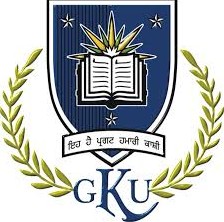
Guru Kashi University - GKU
Bathinda, Punjab -
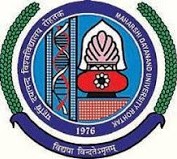
Maharshi Dayanand University - MDU
Rohtak, Haryana -

Pacific University - PU
Udaipur-Rajasthan, Rajasthan -
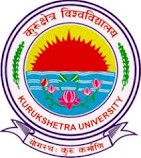
Kurukshetra University - KU
Kurukshetra, Haryana -
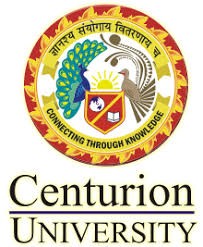
Centurion University of Technology and Management - CUTM
Visakhapatnam, Andhra Pradesh -

KREA University - KU
Sricity, Andhra Pradesh -
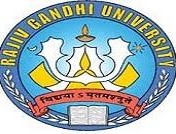
Rajiv Gandhi University - RGU
Papum Pare, Arunachal Pradesh -

SRM University - SU
Guntur, Andhra Pradesh -
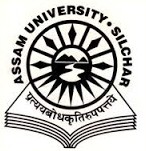
Assam University - AU
Silchar, Assam -

Tezpur University - TU
Sonitpur, Assam -

Central University of South Bihar - CUSB
Fatehpur-Bihar, Bihar -

Mahatma Gandhi Central University - MGCU
Motihari, Bihar -

Nalanda University - NU
Rajgir, Bihar -

Jamia Millia Islamia - JMI
New Delhi, Delhi -

VIT-AP University - VU
Guntur, Andhra Pradesh -

Apex Professional University - APU
East Siang, Arunachal Pradesh -

Arunachal University of Studies - AUS
Namsai, Arunachal Pradesh -

Arunodaya University - AU
Itanagar, Arunachal Pradesh -

Himalayan University - HU
Itanagar, Arunachal Pradesh -

North East Frontier Technical University - NEFTU
West Siang, Arunachal Pradesh -

Indira Gandhi Technological and Medical Science University - IGTMSU
Ziro, Arunachal Pradesh -

Venkateshwara Open University - VOU
Naharlagun, Arunachal Pradesh -

Assam Don Bosco University - ADBU
Azara, Assam -

Assam Down Town University - ADTU
Guwahati, Assam -
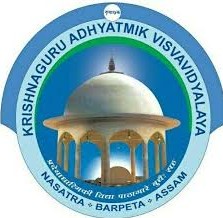
Krishnaguru Adhyatmik Visvavidyalaya - KAV
Barpeta, Assam -

Mahapurusha Srimanta Sankaradeva Viswavidyalaya - MSSV
Nagaon, Assam -
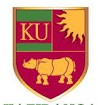
The Assam Kaziranga University - AKU
Jorhat, Assam -

The Assam Royal Global University - ARGU
Guwahati, Assam -

Amity University - AU
Patna, Bihar -

Dr C. V. Raman University - CVRU
Vaishali, Bihar -

Gopal Narayan Singh University - GNSU
Rohtas, Bihar -

K K University - KKU
Nalanda, Bihar -

Sandip University - SU
Madhubani, Bihar -
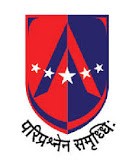
Ahmedabad University - AU
Ahmedabad, Gujarat -

Anant National University - ANU
Ahmedabad, Gujarat -

Atmiya University - AU
Rajkot, Gujarat -

AURO University of Hospitality and Management - AUHM
Surat, Gujarat -

C. U. Shah University - CUSU
Wadhwan, Gujarat -

Calorx Teacher's University
Ahmedabad, Gujarat -

Charotar University of Science & Technology - CUST
Anand, Gujarat -

Jawaharlal Nehru University - JNU
Delhi, Delhi -

Dhirubhai Ambani Institute of Information and Communication Technology - DAIICT
Gandhinagar, Gujarat -

G.L.S. University - GU
Ahmedabad, Gujarat -
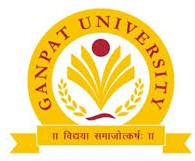
Ganpat University - GU
Mehsana, Gujarat -

Gokul Global University - GGU
Sidhpur, Gujarat -

GSFC University - GU
Vadodara, Gujarat -

Indian Institute of Public Health - IIPH
Ahmedabad, Gujarat
PH.D. Thesis Writing Assistance/Paper Publication Services
- UGC Care List Journal Publication Services
- Scopus Journal Publication
- Proposal / Synopsis Writing
- Topic Suggestion
- Ph.D. Thesis Writing
- Dissertation Writing
- Research Paper Writing
- Paper Publication with ISSN Number
- Conference / Seminars
- PowerPoint Presentation
- Data Collection / Analysis
- Plagiarism Correction
- Plagiarism Report TURNITIN / URKUND
- Book Publication
- Ph.D. Thesis Concert into Book
- All Research Work
- Complete Research Work
- Indexed Journals - Scopus
- UGC Care Journal
- Research Review Journal
- Home |
- About Us |
- Privacy Policy |
- Terms & Conditions |
- Contact Us |
- PH.D. |
- Admission 2024 |
- Our Team |
- Visitor: 385059214